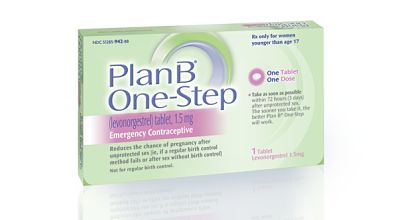Obama Administration Holds Ground on Morning-After Pill Prescriptions
The Obama administration on Wednesday shocked pro-life supporters and women’s health advocates by rejecting a plan that would let girls under the age of 17 buy a morning-after pill called Plan B One-Step without a prescription.
Plan B One-Step is a single-dose pill that works to reduce the chances of getting pregnant if taken within 72 days after unprotected sex. Morning-after pills contain higher levels of a hormone found in some types of daily use oral hormonal contraceptive pills and works in a similar way to birth control pills.
Plan B is currently sold without a prescription to girls 17 and older, but requires a prescription for girls younger than 17.
“There is adequate and reasonable, well-supported, and science-based evidence that Plan B One-Step is safe and effective and should be approved for nonprescription use for all females of child-bearing potential,” FDA administrator Margaret Hamburg said.
“However, this morning I received a memorandum from the Secretary of Health and Human Services invoking her authority under the Federal Food, Drug, and Cosmetic Act to execute its provisions and stating that she does not agree with the Agency’s decision.”
Health and Human Services Secretary Kathleen Sebelius said she reversed the FDA’s decision because she did not believe the drug maker’s data conclusively established that young girls could use Plan B safely.
“About 10 percent of girls are physically capable of bearing children by 11.1 years of age,” Sebelius said. “It is common knowledge that there are significant cognitive and behavioral differences between older adolescent girls and the youngest girls of reproductive age.”
Jeanne Monahan, director of Family Research Council’s (FRC) Center for Human Dignity, applauded the decision. As she sees it, making Plan B available for girls under the age of 17 without a prescription would not have been in the interest of young women’s health.
“Secretary Kathleen Sebelius was right to reject the FDA recommendation to make this potent drug available over the counter to young girls,” Monahan said. “In her own words, the research submitted to the FDA did not include data for all ages for which the drug would be used.”
But not everyone agrees with Sebelius. Kirsten Moore, president and CEO of the Reproductive Health Technologies Project, is among them.
“We are outraged that this administration has let politics trump science,” Moore said. “There is no rationale for this move. This is unprecedented as evidenced by the Commissioner’s own letter. Unbelievable.”
FRC’s Monahan, however, points to another safety issue: sexually transmitted diseases (STDs). About half of the STDs nationwide are among young people, according to the Center for Disease Control and Prevention.
Monahan said the availability of Plan B over-the-counter for all ages would have bypassed necessary routine medical care for sexually active girls. What’s more, a study released in 2010 revealed that adolescent use of Plan B was correlated with an increase in unplanned pregnancies and a high STD rate.
“There is also the issue of sexual abuse and exploitation. The average age of a girl who is sexually trafficked in the U.S. is 13 to 14. There is a real danger that Plan B could be given to young women, especially sexually abused minors, under coercion or without their consent,” Monahan said.
“Interaction with medical professionals is a major screening and defense mechanism for victims of sexual abuse. Finally, Plan B can act in a way that can destroy life by preventing implantation. Women of all ages have the right to know how this drug may act in their bodies and on their newly developing babies.”














































